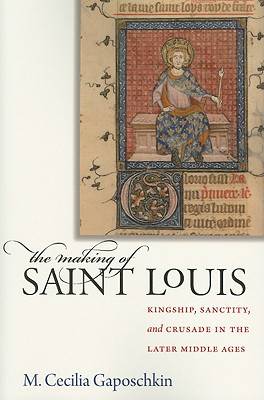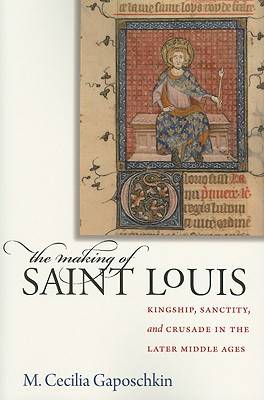
- Retrait gratuit dans votre magasin Club
- 7.000.000 titres dans notre catalogue
- Payer en toute sécurité
- Toujours un magasin près de chez vous
- Retrait gratuit dans votre magasin Club
- 7.000.0000 titres dans notre catalogue
- Payer en toute sécurité
- Toujours un magasin près de chez vous
The Making of Saint Louis
Kingship, Sanctity, and Crusade in the Later Middle Ages
M Cecilia GaposchkinDescription
Canonized in 1297 as Saint Louis, King Louis IX of France (r. 1226-1270) was one of the most important kings of medieval history and also one of the foremost saints of the later Middle Ages. As a saint, Louis became the centerpiece of an ideological program that buttressed the ongoing political consolidation of France and underscored Capetian claims of sacred kingship.
M. Cecilia Gaposchkin reconstructs and analyzes the process that led to the monarch's canonization and the consolidation and spread of his cult. Differing political and religious ideals produced competing images of the sanctity of Louis in late-thirteenth and early fourteenth-century France. Drawing on hagiography, sermons, and liturgical evidence--the latter a rich but little-explored historical source--Gaposchkin shows how various groups (including Dominicans, Cistercians, and Franciscans) and individuals (such as Philip the Fair and Joinville) used commemoration of the saint-king to sanctify their own politics and notions of identity and religious virtue. Louis' cult was disseminated to a wider, nonelite public through sermons in the fourteenth and fifteenth centuries and then revived by the Bourbon kings in the seventeenth century.
In deepening our knowledge of this royal saint, this elegantly written book opens the curtain on the religious sensibilities and secular politics of a transitional period in European history.
Spécifications
Parties prenantes
- Auteur(s) :
- Editeur:
Contenu
- Nombre de pages :
- 352
- Langue:
- Anglais
Caractéristiques
- EAN:
- 9780801476259
- Date de parution :
- 15-06-10
- Format:
- Livre broché
- Format numérique:
- Trade paperback (VS)
- Dimensions :
- 155 mm x 234 mm
- Poids :
- 521 g

Les avis
Nous publions uniquement les avis qui respectent les conditions requises. Consultez nos conditions pour les avis.






